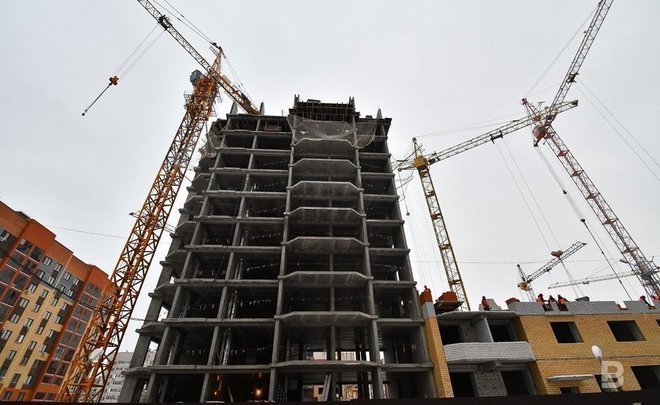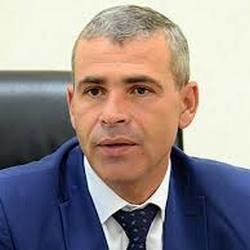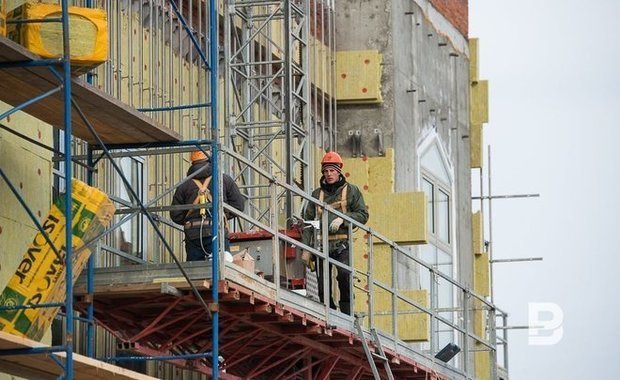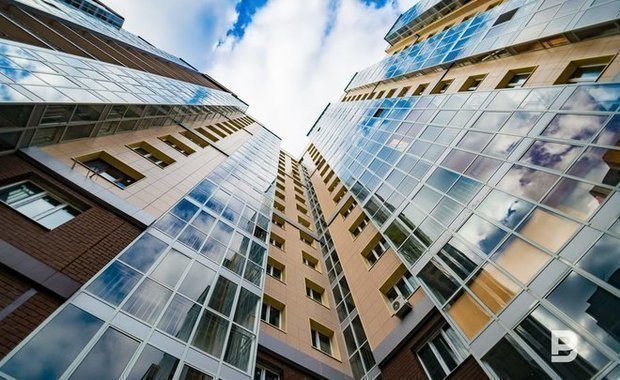‘Price increase is not caused by anything’: cement risen in price following armature in construction
Why “strategic” building materials are getting more expensive despite the intervention of supervisory authorities

A new disappointment awaits potential buyers of apartments in new buildings: cement prices have soared following the prices of armature, which means that already expensive square metres are going to become even more expensive. The supervisory authorities have just managed to slow down the increase in the cost of “strategic” building materials — steel armature and pipes, and together all this has already predetermined a new round of housing prices in the near future. Read more about the painful impact of the “iron rod” on the construction industry, the oddities of the pricing of materials, and a sharp rise in cement price — in the material of Realnoe Vremya.
“Today, price increase is not caused by anything”
Metal prices went up sharply in early March, and at the same time, head of the Russian Ministry of Construction Irek Fayzullin expressed deep concern that this would affect the final cost of construction of already started facilities. At the same time, the ministry sent an appeal on this matter to the FAS, but already on April 19, the antimonopoly agency announced that it saw no reason to take response measures, since none of the participants in this market occupies a dominant position in it.
In May, the Prosecutor General's Office also took control of the increase in the cost of metal, but meanwhile prices for armature and pipes continued to move up along with prices for the final product — housing.

Belyakov explained that in the construction season, in summer, metal suppliers always ask for more for it than out of season — in winter, based on the logic “the more expensive we ask, the more we earn.” Although it seems to him that it would be much more logical in the season of the highest demand to make money on growing turnover — especially given that foreign sales markets have become inaccessible to Russian manufacturers due to sanctions due to the special military operation:
“There is an absurd situation: abroad does not like us, we do not like it either, they do not buy metal from us, but prices for it in the domestic market continue to rise. At the same time, if earlier the increase in metal prices was explained by the growth of the dollar, now we are not tied to the dollar — and the price increase is obvious. In winter, at least it can be justified — well, heating of workshops, for example, but in summer, it is not conditioned by anything at all!”

“Market regulation is the function of the state”
“Seasonal increase in metal prices, however, as well as for cement, is a common thing for summer," Emil Khusnutdinov, CEO of ZhIK Group, supported his colleague. “During this period, all materials become more expensive. Prices rise by 20-25% at this time.”
But everything that does not fit into such a growth should, in his opinion, cause concern and an appropriate reaction:

Taking into account that in construction, despite everything, things are still going well — new projects are starting, old ones are being completed, Emil Khusnutdinov noted that there is stagnation in the sales of new buildings, and one of its reasons is the high cost and, as a result, low availability of housing for those who need it:
“I hope that this trend will be overcome by joint efforts. After all, there have been amplitude movements here for many years — up and down, and I hope that everything should get better soon. The Russian government is taking measures to stimulate demand [for housing], and I think it will be possible to spur it. But prices per square metre are unlikely to fall: if the cost of construction is rising and prices for materials are rising, then how can the sales price fall?"

Why stocks do not help
When asked how this situation can be changed if the market itself has not settled it, Andrey Belyakov replied: “It's very simple, and this is not the level of the republic and the city, but the feds — a single law should be adopted, and that's it.”
While this has not happened, Belyakov assumes that in 2023, as in previous years, a slight decline in metal prices will gradually begin, but certainly will not affect the prices of the “final product” — housing:
“It should be understood that the price is included in the estimates, single for the year — the average cost. In summer, the metal costs, relatively speaking, 70 thousand, in winter — 55, we take the average value, put 10 percent on the risks — and in the end we get 70 thousand. There is no point in buying metal in advance at a cheap price: it will require a loan, and the credit burden will fall on the final cost, and the builders will not win anything.”

According to Wolfson, the State Duma deputies are making efforts to “resolve” the problem — they are negotiating with railway workers about the allocation of wagons:
“I personally addressed the management of the Kuybyshev Railway in writing — they reacted, the cars were allocated. We solve problems, as they say, in manual mode.”
The deputy is convinced that the price problems can be overcome, because today there are circumstances in Russia that contribute to the development of the domestic market of our country:
“If earlier the rise in prices for building materials was explained by a growth of exchange rate, large volumes of exports, today all conditions have been created for trade in them within the country. And we will definitely figure out what prevents normal pricing!”
Earlier, Russian analysts explained the increase in armature prices by a combination of factors such as a growth of demand for metal in the world and in the country (in the world — due to that construction has intensified due to falling energy prices, and in Russia — because new territories are being restored). Other reasons included the growing needs of Turkish builders engaged in rebuilding the country after the earthquake, as well as the recovery from the crisis and the growth of the economy of the world's main buyer of metal — China.
The Russian Ministry of Industry and Trade, explain the increase in prices for armature, in addition to the seasonal factor, by the rise in the price of ferrous scrap and the increase in tariffs of natural monopolies for electricity and rail transportation, which no one repealled — and this also does not inspire much optimism. Coupled with what Ilya Wolfson said about the increase in the cost of cement, it is more likely to assume an escalation in housing prices as a final product.